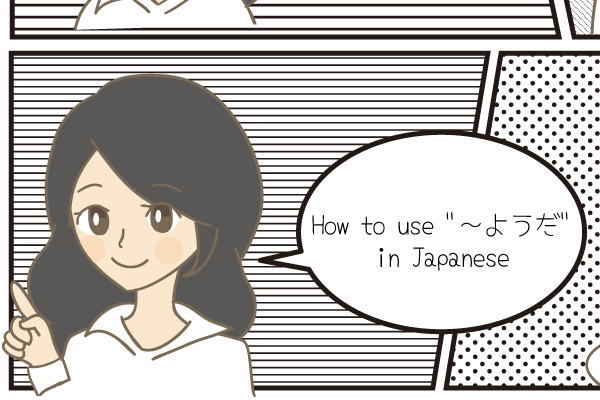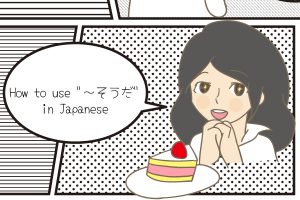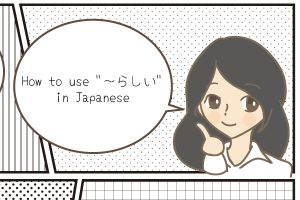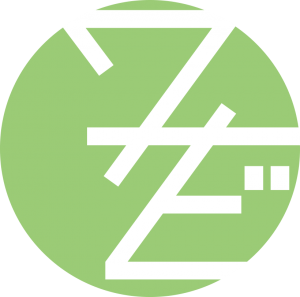How to use “~ようだ” in Japanese
Last week Shiho explained how you can describe the (possible) state of being of people, things or situations using “~そうだ”.
In this lesson, we will talk about Shihos video introducing the expression “~ようだ”, which is quite similar to “~そうだ”. “~ようだ” can be used to take your knowledge as a basis to make judgements on things and situations to imagine a condition or state. This sounds complicated, but is actually fairly easy and often used in everyday Japanese!
| Table of Contents [About “~ようだ”] [The meanings of “~ようだ”] [“~みたいだ”] |
[About “~ようだ”]
“~ようだ” most often refers to a guess the speaker is making – a guess based off the basic knowledge the speaker has of a situation and the judgement/conclusion made from a result of that knowledge.
Grammatically, “~ようだ” can be used with the “普通形” (“normal” or standard versions) of verbs, i-adjectives and na-adjectives as well as with nouns: noun+だ + “~ようだ”.
Let’s look at examples for each category.
Verb + ようだ
行くようだ/行かないようだ/行ったようだ/行かなかったようだ
Na-adjective + ようだ
元気なようだ/元気じゃないようだ/元気ではないようだ/元気だったようだ/元気じゃなかったようだ/元気ではなかったようだ
Noun + だ + ようだ
休みのようだ/休みじゃないようだ/休みではないようだ/休みだったようだ/休みじゃなかったようだ/休みではなかったようだ
[adsense]
[The meanings of “~ようだ”]
Next up, let’s take a look at the different meanings of “~ようだ”. We established earlier that “~ようだ” can be used to express a guess the speaker made. But there are actually many other ways to use “~ようだ”! All in all we can split them into three different groups.
Expressing a guess
There are three different ways to use “~ようだ” to express a guess. No matter which way you use it, expressing a guess with “~ようだ” allows the speaker to convey their feelings about a situation without drawing clear conclusions or making a definite deicision.
Therefore, “~ようだ” is often used when the speaker doesn’t want to draw a definite conclusion or to avoid being impolite.
Guess 1: Judging from experience
The speaker makes a guess based off their personal experience (that experience can stem from the current circumstances the speaker is in).
For example, even though it’s already way past the meeting time, Hanako still hasn’t shown up. It’s already past the meeting time, and she’s this late… based on “experiencing” these circumstances, you assume that that she is probably not going to show up at all. Then you could say:
花子さんは今日は来ないようだ
Hanako will probably not come/It seems like Hanako is not coming today
Guess 2: Guessing about past occurrences
Here the speaker makes a guess about something that happened in the past. Example:
花子さんは昨日、家に帰らなかったようだ
It seems like Hanako didn’t come home yesterday.
Guess 3: Conveying feelings or actions of others
You can also use “~ようだ” to make a guess about the feelings and actions of others: Example:
彼は試験に合格して嬉しいようだ
He seems happy he passed the exam.
2) Expressing an exemplification
When using “~ようだ” to make an exemplification, you use it as ~ような + noun or ~ように + verb. For example:
あなたのような人は嫌いです
I hate people like you.
私が言うようにしてください
Please do it like I told you.
前にも話したように、来週は北海道に出張へ行きます
Like I said before I will go on a business trip to Hokkaido next week.
3) Expressing similes/metaphors
“比喩” in Japanese means both simile and metaphor. When using “~ようだ” to express “比喩”, this means you express something by comparing it to something else. When making a sentence to express a simile you will have to construct it like this:
Noun + のようだ
Verb (普通形 or “standard” form) + ようだ”
Or
Verb (普通形 or “standard” form) + かのようだ
Example:
ビヨンセに会えるなんて、まるで夢のようだ
Meeting Beyonce would be like a dream.
彼女は死んだように眠っていた
She was sleeping as if she was dead.
田中さんはその場にいたかのように事件について話していた
Miss Tanaka was talking about the incident as if she had been there.
[“~みたいだ”]
There is another expression with exactly the same meaning as “~ようだ”: “~みたいだ”. This is a lot more casual than “~ようだ” and should be used just colloquially and in conversation. Example:
彼女はもう出かけたみたいだ
Seems like she already left
あなたみたいな人は大嫌い!
I hate people like you!
(星を見をて)あー、ダイヤモンドみたい
(Looking at the stars) A, they look just like diamonds
Make sure not to use “~みたいだ” in formal situations.
“~ようだ” is very commonly used in every day Japanese conversation, so try pracicing a lot.
If you ever want to practice this expression with one of our native Japanese tutors, don’t hesitate to sign up on Wasabi and start with a trial lesson before deciding for anything!
| 根拠 | Basis, foundation |
| 判断する | To judge, make a judgement |
| 想像する | To imagine |
| 推量 | Guess |
| 断定する | To come to a conclusion, to make a decision |
| 感覚 | Sensation, feeling |
| 避けたい | To avoid |
| 推測する | To guess, to conjecture, to assume |
| 例示 | Exemplification |
| 比喩 | Simile, metaphor |





